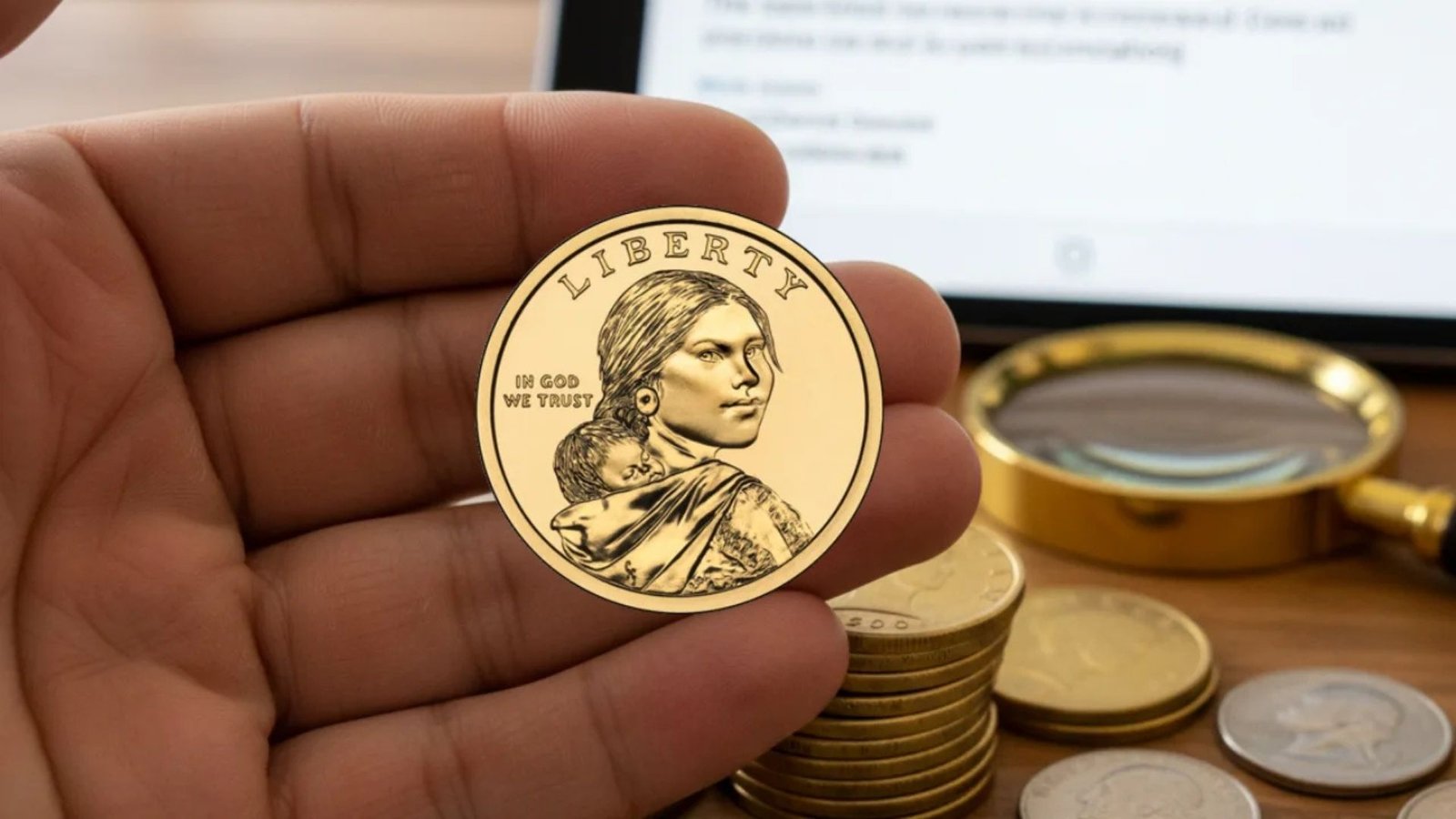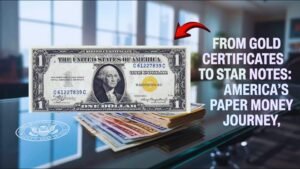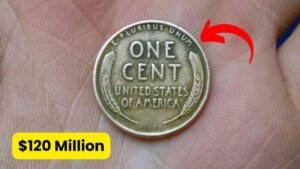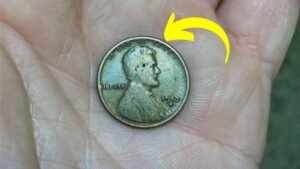A simple stop at a coffee shop turned into a collector’s dream when a customer received a Sacagawea Dollar that was anything but ordinary. What looked like a regular golden coin was, in fact, a rare minting error worth thousands. Could you have one hiding in your change too? Let’s uncover the truth behind this remarkable find.
What Is the Sacagawea Dollar?
The Sacagawea Dollar, introduced in 2000, honors Sacagawea, the Shoshone guide who helped Lewis and Clark explore the American West. Featuring a golden hue and smooth edge, this coin quickly became iconic, yet often overlooked in daily use. But not all Sacagawea Dollars are created equal — some carry hidden secrets that make them exceptionally valuable.
A Short History of the Coin
The U.S. Mint launched the Sacagawea Dollar to replace the unpopular Susan B. Anthony Dollar. Struck in a copper core with a manganese-brass cladding, it symbolized both heritage and modern minting. However, during its early production years, unexpected minting anomalies occurred — giving rise to coins collectors now treasure as rare.
The Rare “Cheerios” Sacagawea Dollar
Among the most coveted is the 2000-P “Cheerios” Sacagawea Dollar, distributed in cereal boxes as part of a promotional campaign. While 5,500 coins were given away, only a fraction contained a distinct reverse design with enhanced tail feathers. This tiny detail transformed an ordinary giveaway into a numismatic marvel valued at over $5,000 in pristine condition.
Other Valuable Sacagawea Dollar Errors
Not just Cheerios coins — certain minting errors and special editions have made headlines too. Some 2000-P coins struck on wrong planchets, or with missing edge lettering, are worth hundreds to thousands. Even special Native American reverse issues with low mintages attract strong collector interest.
Rare Sacagawea Dollar Varieties
| Type / Error Type | Year | Key Feature | Estimated Value |
|---|---|---|---|
| Cheerios Sacagawea Dollar | 2000 | Enhanced eagle tail feathers | $5,000+ |
| Wrong Planchet Error | 2000 | Struck on non-standard coin metal | $2,000+ |
| Missing Edge Lettering | 2007 | No inscriptions on coin edge | $500–$1,000 |
| Low Mintage Reverse Designs | 2009+ | Special Native American designs | $100–$300 |
| Proof Error Strike | 2000 | Double strike or misaligned die | $1,000+ |
Why It’s Valuable Today
The scarcity, story, and condition all contribute to the Sacagawea Dollar’s growing value. Collectors crave coins with unique backstories, especially those discovered unexpectedly in circulation. When supply is low and intrigue is high, demand — and prices — soar.
Factors That Determine Value
| Factor | Description | Impact on Value |
|---|---|---|
| Rarity | Fewer coins known = higher worth | High |
| Condition (Grade) | Mint State coins command premium prices | Very High |
| Error Type | Unusual errors are more collectible | Medium–High |
| Provenance | Documented finds attract strong interest | Medium |
| Demand | Market popularity drives bidding wars | High |
Expert Tips for Collectors
- Check your change carefully — rare coins often appear in circulation unnoticed.
- Inspect tail feathers — for “Cheerios” varieties, look for enhanced detail.
- Get your coin graded — professional certification from PCGS or NGC boosts authenticity and resale value.
- Stay updated on auctions — rare Sacagawea Dollars often emerge in estate sales or online bidding events.
- Store safely — use protective holders to maintain condition and value.
Frequently Asked Questions (FAQs)
Q: Can I still find rare Sacagawea Dollars in change?
A: Yes, though rare, some valuable varieties still surface in daily transactions.
Q: How can I identify a Cheerios Sacagawea Dollar?
A: Look for enhanced eagle tail feathers — five distinct lines instead of four.
Q: Are all 2000-P Sacagawea Dollars valuable?
A: No, only certain errors or promotional coins hold significant premium.
Q: Should I clean my coin before grading?
A: Never — cleaning can reduce or destroy numismatic value.
Conclusion: A Hidden Treasure in Your Wallet
That unassuming Sacagawea Dollar could be a golden ticket — literally. Stories of everyday finds remind us that hidden treasures still circulate quietly, waiting to be discovered. So next time you break a bill, check your change — your next coin could be worth thousands.




